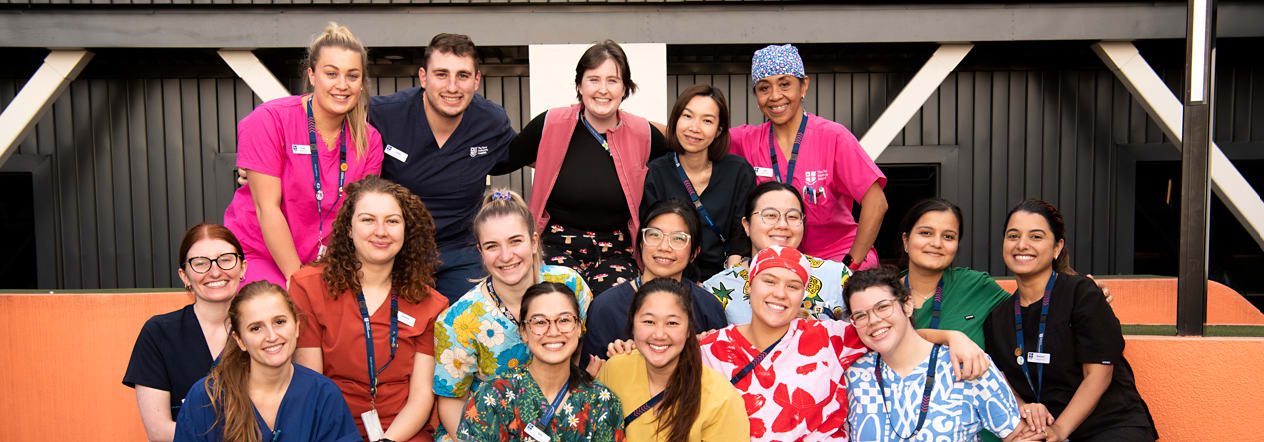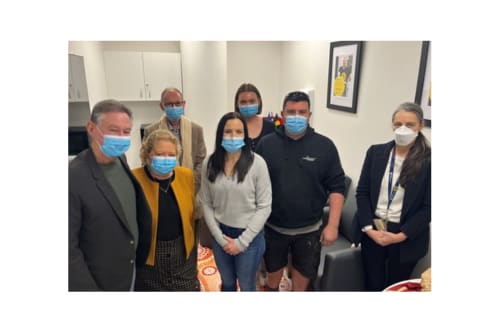For Natasha, life was go, go, go. Prior to March 2022, she was busy running her own business and managing a family with 2 young children.
In March 2022, Natasha was about to launch her online homeware store but a day before she was diagnosed with leukaemia, her world stopped! Natasha wasn’t feeling well, she thought she may have been suffering from long COVID as she previously had a bout of tonsillitis and COVID.
Natasha was also convinced she might be run down. She went to her son’s ‘ tae kwon do’ class and whilst there she tried a couple of star jumps but her heart was racing, so she went to the doctor - she was convinced it could be long COVID given her recent experience.
The doctor did a blood test that morning and at 4pm that day, the doctor phoned Natasha and said, “The emergency department is waiting for you, you need to get there right away”.
Natasha burst into tears, the doctor said they were looking into blood related diseases, possibly leukaemia but you need to get yourself to the hospital. Natasha left for the hospital and she didn’t return home for 31 days.
Within an hour of arriving at the hospital, Natasha heard the three words nobody ever wants to hear “you have Leukaemia”. They had been studying her blood all afternoon and discovered she had Acute Myleoid Leukaemia – Natasha was shell shocked.
All Natasha could say to herself, “Well this is the place I need to be, but I just don’t want to be here, I want to be home with my kids”.
“The doctors were amazing, they really helped me understand my diagnosis and gave me so much help and advice and talked me through the process. Within one day I was offered clinical trials I could participate in” said Natasha.
Natasha is such a positive person, she actually prefers her appearance now with no hair compared to her blond long hair from before. Natasha’s life has slowed down and she has a new perspective on life – before her diagnosis she would be living life at 100mph, often working till 10-11pm at night. Life now is very different, Natasha values every day with her kids just doing the simple things like enjoying the sunshine and having picnics with the family in the garden.
After 31 days and going into remission, Natasha finally left hospital. “All I want to do is go home and sit with my kids, my partner Tom and my cat” she added.
When she was home, Natasha had to tell her children about cancer. This was really hard but the RMH had provided support in how to have these conversations. “It was heartbreaking because my youngest Tommy didn’t understand and he was very angry, but we managed to work it through together. They were so brave” said Natasha.
Natasha said “The RMH are like family” she spent 8 of her last 10 weeks in the hospital, she felt so relaxed and cared for. “The care and attention is amazing” Natasha added.
Having had this experience Natasha said “Take time in life to take a breath and be kind, don’t forget to appreciate the good things in life”.
Natasha added “This condition is horrible and I wouldn’t wish it on my worst enemy. If they can cure it, and find out why it happens then nobody has to go through this - that would be my dream”.
On being a Dry July Ambassador, Natasha added “I’m so happy to participate in Dry July - it’s part of the journey. No drinking is good for my health, so I’m looking forward to the challenge, involving my friends and raising lots of money for The Royal Melbourne Hospital through Dry July.”




